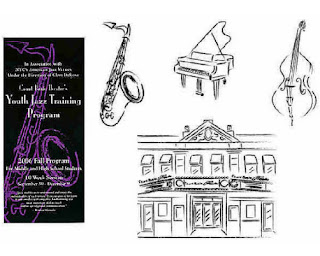Screen 2
Screen 3
Screen 4
Screen 5
Screen 6
Screen 8
Screen 9
Screen 10
Screen 11
Fintans blog
Tuesday, April 12, 2011
Monday, April 11, 2011
Sunday, April 10, 2011
Saturday, April 9, 2011
Friday, April 8, 2011
Mock up 2
Here the image of the brain i didnt draw in one side of the brain because it symbolises the side of your brain were music/emotion comes from
How Music infuences the body
Bodily Responses to Music
In general, responses to music are able to be observed. It has been proven that music influences humans both in good and bad ways. These effects are instant and long lasting. Music is thought to link all of the emotional, spiritual, and physical elements of the universe. Music can also be used to change a person's mood, and has been found to cause like physical responses in many people simultaneously. Music also has the ability to strengthen or weaken emotions from a particular event such as a funeral.People perceive and respond to music in different ways. The level of musicianship of the performer and the listener as well as the manner in which a piece is performed affects the "experience" of music. An experienced and accomplished musician might hear and feel a piece of music in a totally different way than a non-musician or beginner. This is why two accounts of the same piece of music can contradict themselves.
Rhythm is also an important aspect of music to study when looking at responses to music. There are two responses to rhythm. These responses are hard to separate because they are related, and one of these responses cannot exist without the other. These responses are (1) the actual hearing of the rhythm and (2) the physical response to the rhythm. Rhythm organizes physical movements and is very much related to the human body. For example, the body contains rhythms in the heartbeat, while walking, during breathing, etc. Another example of how rhythm orders movement is an autistic boy who could not tie his shoes. He learned how on the second try when the task of tying his shoes was put to a song. The rhythm helped organize his physical movements in time.
It cannot be proven that two people can feel the exact same thing from hearing a piece of music. For example, early missionaries to Africa thought that the nationals had bad rhythm. The missionaries said that when the nationals played on their drums it sounded like they were not beating in time. However, it was later discovered that the nationals were beating out complex polyrhythmic beats such as 2 against 3, 3 against 4, and 2 against 3 and 5, etc. These beats were too advanced for the missionaries to follow.
Responses to music are easy to be detected in the human body. Classical music from the baroque period causes the heart beat and pulse rate to relax to the beat of the music. As the body becomes relaxed and alert, the mind is able to concentrate more easily. Furthermore, baroque music decreases blood pressure and enhances the ability to learn. Music affects the amplitude and frequency of brain waves, which can be measured by an electro-encephalogram. Music also affects breathing rate and electrical resistance of the skin. It has been observed to cause the pupils to dilate, increase blood pressure, and increase the heart rate.
http://www.cerebromente.org.br/n15/mente/musica.html
Thursday, April 7, 2011
Tuesday, April 5, 2011
Chimera
I didnt like the head on my chimera design because i didnt look like a head at all so i looked into it more n found a way that i could make the spanners form a skull shape. The bottom part looks like a jaw bone and the top part with it looks like a skull
Subscribe to:
Posts (Atom)









































